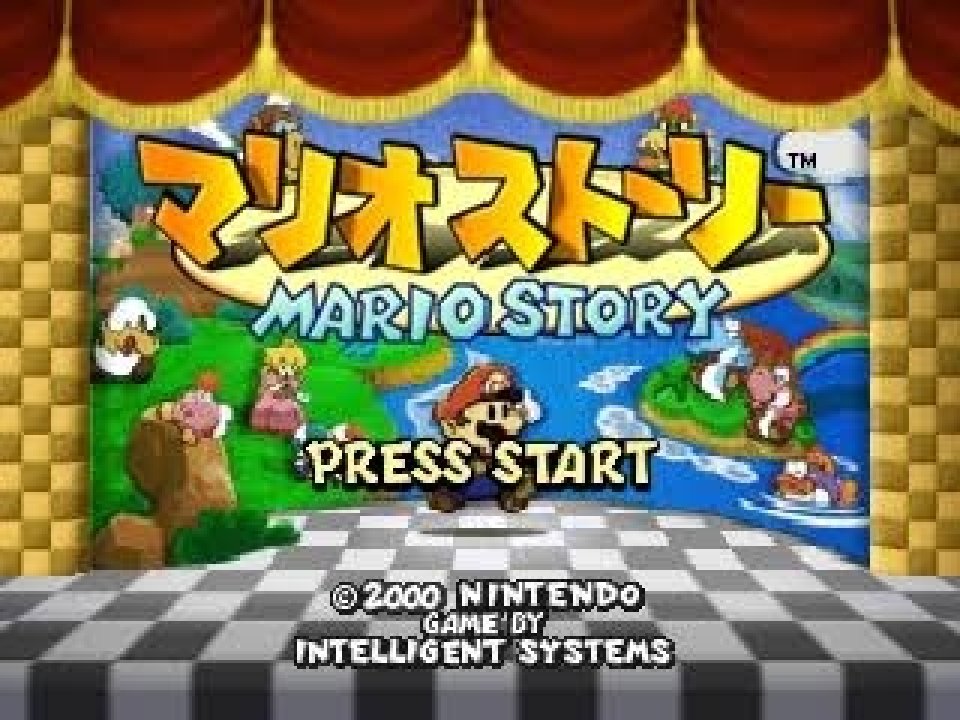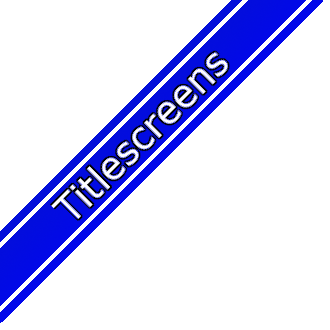

Platform: Nintendo 64
Region: NTSC-J
Country: Japan
Developer(s): Intelligent Systems
Publishers(s): Nintendo
ReleaseDate: 2000-08-11
Players: 1
Co-op: No
Mario Story
Also know as: マリオストーリー Mario Sutōrī? | Paper Mario
Paper Mario is a role-playing game developed by Intelligent Systems for the Nintendo 64. It was later re-released for the iQue Player in 2004, the Wii's Virtual Console in 2007, the Wii U's Virtual Console in 2015, and Nintendo 64 - Nintendo Switch Online in 2021. Paper Mario has the player taking control of Mario on his quest to rescue Princess Peach and save the Mushroom Kingdom from Bowser, who has stolen the mythical Star Rod of Star Haven and used its wish-granting powers to make himself invincible. To stop Bowser and rescue Princess Peach, Mario and company must save the seven Star Spirits; magical beings who have been sealed in cards by Bowser with the power to nullify the Star Rod, as well as the original owners of the Star Rod. Paper Mario's gameplay is a blend of traditional Japanese role-playing games and Mario-esque platforming features; Mario has the ability to jump in both the overworld and in battle, and jumping remains one of the most important actions in the game. The player controls Mario and a party of followers as they journey through the Mushroom Kingdom, exploring dungeons, managing stats, and battling enemies. The title refers to the game's arts and crafts aesthetic; nearly every character in the game is drawn as a flat 2D sprite, revealing itself as paper-thin when turning around, and many elements of the environments are also depicted as 2D sprites. Paper Mario was initially in development for the Nintendo 64DD under the name Super Mario RPG 2[5] (also called Mario RPG 2[6] or Mario RPG 64[7]) and intended as a sequel to Super Mario RPG: Legend of the Seven Stars. Concept art posted by Super Mario RPG artist Kazuyuki Kurashima on his Instagram account in 2019 indicated that Samus Aran and Link from the Metroid and The Legend of Zelda franchises would have appeared alongside Mario characters.[8] It later became the first installment of the Paper Mario series and would go on to receive several sequels; the first in the same style of gameplay (Paper Mario: The Thousand-Year Door), followed by four in different playstyles (Super Paper Mario, Paper Mario: Sticker Star, Paper Mario: Color Splash, and Paper Mario: The Origami King). The above text is from the Super Mario Wiki and is available under a Creative Commons license. Attribution must be provided through a list of authors or a link back to the original article. Source: https://www.mariowiki.com/Paper_Mario
Trailer: YouTube
ESRB Rating: Not Rated
Genre(s): Role-Playing





